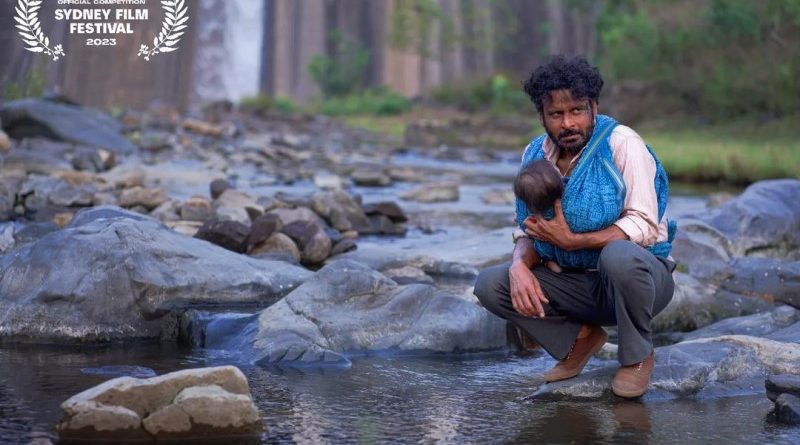The Slow Burn of Survival in Joram
Director Devashish Makhija takes viewers on a tense yet grounded thriller in Joram, eschewing Hollywood thrills for agonizing realism. As protagonist and father Dasru, Manoj Bajpayee delivers another captivating performance, embodying a displaced tribal clinging to his infant daughter while fleeing oppressors. Makhija builds intrigue through strong visual storytelling and social commentary rather than high-octane action.
Performances Carry Haunting Tale of Dispossession
Bajpayee shines as the largely wordless Dasru, conveying panic and desperation with every fiber of his being. When his wife is murdered, Dasru finds himself on the run from both police and powerful mining CEO Phulo Karma (Smita Tambe), all while protecting baby daughter Joram. Bajpayee inhabits the character fully, eyes seeming to flee his head as he recoils in silence, focused solely on his daughter’s survival.
As Karma, Tambe simmers with vengeful intent, holding the viewer’s attention with little more than her domineering stare. Mohammed Zeeshan Ayyub puts in a strong turn as conflicted Inspector Ratnakar, tasked with capturing Dasru alive. But the film belongs to Bajpayee, who seems a refugee from classic nightmare thriller M, clinging to his bundle of joy as his only escape from ceaseless exploitation.
Also Read: Sunny Deol Clarifies his “Drunk” Video is Actually ‘Safar’ Shoot
Harrowing Imagery Drives Home Dispossession
Makhija leverages haunting visuals to drive home the crisis of India’s displaced tribes. Shooting on location in dim urban spaces and half-finished towers, he creates a claustrophobic atmosphere where Dasru has nowhere to run. Train cars become improbable sanctuaries as Dasru improvises an escape. And through it all, Makhija peppers in mythic touches — as when a blighted tree stands over a razed forest, symbolic of tradition in the path of so-called progress.
Rather than orchestrate a crescendo, Makhija steadily strips away options, letting the harsh world close in on Bajpayee’s increasingly desperate nomad. It’s a document of oppression as much as a thriller, more Fritz Lang than Michael Bay. With no easy answers, Makhija asks viewers to sit with the distressing contradictions of social stratification and displacement that many take for granted. It’s a tough watch, but Bajpayee makes it hard to look away.
Also Read: Chennai Floods: How Ajith Kumar Lent Support to Aamir Khan and Vishnu Vishal
Gritty Social Thriller Burns Slow and Unsettling
Joram simmers more than it scorches, immersing viewers in injustice rather than distracting with spectacle. Makhija builds intrigue through savage environments and talks of age-old trees rather than trite exposition. Tambe’s Karma serves more as primal force than mere villain. It makes for a uniquely Indian take on tried themes, flawlessly performed.
Fans of Bajpayee won’t want to miss his latest transformation. And appreciators of slow-building mood and societal critique will find much to admire in Joram’s harrowing descent. Makhija has crafted an unsettling work of activist filmmaking, confrontational yet compassionate. Joram lingers long after the credits roll — a haunting vision of realities many ignore each day.
Also Read: Hrithik-Deepika Pair Up For High Flying Stunts in ‘Fighter’
Catch us for latest Bollywood News, Movies Reviews, New Movie Release , and Follow us on Instagram, Twitter, Facebook




